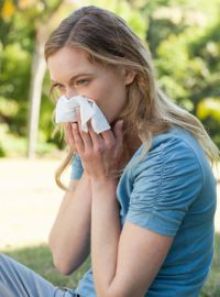A temporary sensation of itching in the ears, which disappears suddenly, is quite normal. The irritable feeling is often associated with wax buildup, which can be easily eliminated using ear swabs and peroxide. If, after carrying out cleaning procedures, no effect is observed, accompanying symptoms occur, most likely this indicates the presence of a number of diseases.
The causes are varied:
- otitis different forms(internal, external);
- fungal formations in the ear cavity (otomycosis);
- eczema of the external cavity of the hearing organs;
- irritations and other allergic reactions caused by taking medications (aspirin) or using cosmetic products;
- improper metabolism;
- mechanical damage, deformation, minor scratches;
- diabetes.
- lack of personal hygiene;
- dry skin;
- liver and kidney diseases;
- various irritants (chemical, mechanical and thermal).
Accompanying symptoms
- If the ear itches and pain occurs upon contact, there may be an infection of the ear, for example, otitis media. If pain is detected, you should contact an otolaryngologist, who will prescribe you a number of medications, depending on the ailment, the stage of its development and type.
- Itchy ears and throat - most likely, these accompanying symptoms indicate the presence of a sore throat. In addition, other viral infections, as well as partial bacterial lesions, can cause similar sensations. The most common example of such sensations can be the usual lack of moisture in the room, which causes itching of the throat, ear and nose.
- Itching in the ear is accompanied by discharge - these are obvious signs. This disease is a fungal growth in the cavity of the hearing organs, and in advanced cases, on the eardrum. Bacteria penetrate the ear tissue through microcracks, scratches and other damage or due to decreased immunity. The disease may be accompanied severe pain aching nature, hearing loss and purulent formations. Causes: lack of proper hygiene, prolonged water congestion, foreign objects, ear deformation.
- The ear flakes and itches are the main signs of dermatitis, a disease that occurs mainly due to vitamin deficiency. In addition to the above symptoms, irritation, redness, and separation of skin layers appear. Dermatitis can develop from constant stressful situations, malnutrition or inherited.
- Constant itching in the ear may indicate the presence of a tumor in the early stages. If the itching does not stop within several days, then consult a doctor; early detection will help avoid serious pathologies.
Treatment
First of all, if you notice unpleasant sensations, you should not try to get rid of the itching by applying physical force. It is possible to carry out hygienic procedures, washing with peroxide, water or a 6% vinegar solution.
If the discomfort does not leave you, diagnosis is necessary, and after identifying the disease, appropriate treatment.
- Otitis media is treated through hospitalization; the patient is prescribed antibiotics in drops or injections. If the body is poisoned by secreted toxins, antibiotics can be taken orally. Drops are prescribed if the membrane does not have any deformation or damage.
- Sore throat and other throat diseases are treated by taking antiviral drugs; in case of complications, drops are used on the ears (Otipax, Otofa, Nazivin). If self-treatment does not produce results, it is necessary to conduct tests, find out the general picture of the disease, and, if necessary, take antibiotics.
- Otomycosis - treatment includes taking antifungal drugs and using antifungal agents. These drugs include: Amphotericin, Burov and Castelanni fluids, Clotrimazole. Additionally, a course of vitamins is prescribed to strengthen the immune system.
- Dermatitis is a multifaceted disease, the treatment of which must be discussed with a specialist. Depending on the specifics, topical ointments, compresses, tablets or physiotherapy (using heating and light therapy) may be prescribed.
- Allergic reactions - first of all, you need to find out what caused the allergy. If these are medications, you need to stop using them, the same goes for cosmetics. If the cause is insect bites, it is necessary to take antihistamines (Cetirizine, Loratadine and similar compositions).
Itching in children
Some causes of itching are similar to the main ones, others are typical only for children:
- when water gets into the ear cavity;
- with accumulation of sulfur;
- ear mite infestation;
- drowsiness is typical only for children; physiological processes during falling asleep can lead to a chain of events that cause itching.
Prevention
To exclude possible diseases, you must adhere to the rules of personal hygiene:
- iron towels and pillowcases, thereby subjecting them to heat treatment;
- wipe your phone with alcohol wipes;
- do not use other people’s hats, headphones and similar means;
- When swimming, use a cap.
A fairly wide range of different reasons can cause a tickle in the throat. Many people feel like their throat is tickling and itching at the beginning of the cold season, which is usually associated with a mild cold.
Drying of the throat can lead to crusts appearing on its inner surface as a result of drying out the mucus located here.
These crusts themselves are a strong source of irritation; they scratch the throat and provoke a cough. When you cough, the crusts come off, often leaving behind microtraumas and microcracks, which during the healing period cause a feeling of tickling, slight itching inside the throat.
Tickling, sore throat, cough, and the feeling of mucus running down the back of the throat are often caused by nasopharyngitis (another name is rhinopharyngitis). This disease is an inflammation of the nasal mucosa and, most often, the upper third of the pharynx (nasopharynx). Since almost all children and adults inevitably encounter this disease, we will talk about it in more detail below.
Acute and chronic inflammation of the nasopharynx
With rhinopharyngitis, the mucous membrane of the nasal cavity and pharynx turns red, swells, and a special liquid forms on its surface, which doctors call exudate, and patients call mucus. The exudate may be transparent, which is typical for inflammation of a viral or allergic origin, or it may be mixed with pus, which indicates a bacterial infection.
Such inflammation can be acute or chronic. The causes of acute inflammation are most often viral diseases and allergies. Chronic nasopharyngitis is usually provoked by bacteria, fungi and the same allergens.
Inflammation of the nasopharynx often affects the ears, or rather the Eustachian tubes - the channel between the pharynx and inner ear. At the same time, there is a feeling that the ears are “stuffed up”; crackling, noise are heard in them, and pain occurs when swallowing.
Interesting fact: an adult suffers from acute inflammation of the nasopharynx on average 2-3 times a year, but a child during the same period can suffer from nasopharyngitis from 6 to 10 times.
What is characteristic of acute nasopharyngitis in adults is that it usually occurs without deterioration of the general condition and with moderate local symptoms.
But in children, the temperature often rises, and there is so much mucus in the nose that the child completely stops breathing through the nose. In this case, pronounced redness appears in the child’s throat, granularity of the back wall of the pharynx, and swelling of the tonsils are observed.

Treatment of acute inflammation of the nasopharynx is purely symptomatic. The basis of therapy is rest, warm drinks and gargling.
It is allowed to use vasoconstrictor drops if necessary. Acute nasopharyngitis can be treated without the help of a doctor, especially in adults, but the chronic form of this disease requires mandatory examination and treatment by an ENT doctor.
It should be said that the throat often itches because its mucous membrane constantly reacts to some substance, otherwise it is an allergen. Allergy is an individual problem, that is, it manifests itself selectively to individual substances in the air, food, medications, and the environment.
Allergy symptoms may include the following:
Feedback from our reader - Olga Solotvina
I recently read an article that talks about the natural preparation Immunity, which contains 25 medicinal herbs and 6 vitamins for the treatment and prevention of colds, sore throats, pharyngitis and many other diseases at home.
I’m not used to trusting any information, but I decided to check and ordered one package. A cold complicated by a sore throat went away in just a couple of days. Now we drink for preventive purposes, preparing for autumn. Try it too, and if anyone is interested, below is the link to the article.

- Sneezing, sometimes intense, often in the morning,
- Rhinorrhea - discharge of clear mucus from the nose,
- Feeling like your throat is itchy or sore,
- Itchy eyes, watery eyes,
- Spread of itching to ears
- Pressure in the ears (stuffy ears),
- Odor perception disorder
- Weakness, fatigue,
- Breathing through the mouth
- Cough.
It is difficult to treat allergies without understanding why they occurred. If the patient cannot identify the cause by excluding the most likely allergens, this should be done together with a doctor.
An allergist will conduct a special skin test that will help determine the sensitivity of the human body to the most common allergens.
To reduce symptoms, the patient is allowed to take antihistamines that do not have a hypnotic effect (for example, Zyrtec, Loratadine). More complex medications are prescribed by the doctor.
Itching in the nasopharynx, which occurs due to a person’s allergies, should be distinguished from a tickling sensation in the throat when exposed to various irritating substances - dust, harmful gases, tobacco smoke, fumes from paints and varnishes.

When inhaling the latter, each person must feel unpleasant symptoms from the respiratory system, and first of all start coughing.
This cough is needed to rid the body of harmful substances.
This condition does not require treatment, and the appearance of itching, scratching and coughing is just a signal to a person to stop contact with the source of dust or unpleasant odor.
About help with folk remedies
Today, a great variety of different remedies have been invented for tickling inside the throat. You can try using such remedies on yourself if you are sure that this symptom is caused by an external influence and not by a disease.
The simplest way to get rid of this feeling is to drink warm water. Water or tea will help wash away the irritant, soften crusts in the throat, if any, and moisturize the mucous membrane.
There are also quite a few people's councils to eliminate the feeling of a tickling throat. For example, if your throat itches, it is recommended to chew a whole clove. Probably, this advice is based on the fact that, thanks to the irritating and astringent properties of cloves, the formation of mucus in the throat will increase and its dryness will decrease.
However, if there is irritation on the mucous membrane, such a method of assistance can only increase the discomfort.

Of the fairly effective and safe folk advice, perhaps we can recommend a recipe based on warm water with honey and lemon juice.
This drink in itself is good remedy for a cold or a viral sore throat due to the fact that it is a warm fortified drink.
When your throat tickles, gargling with diluted aloe juice may help. To prepare this remedy, you need a cup of warm water and a teaspoon of aloe vera juice.
The folk recipe quite good in the presence of crusts and microtraumas of the throat, since due to the aloe content, such a rinse solution has wound-healing properties.
- Crushed vitamin C,
- Chilli.
Of course, if the feeling of a tickling or itching in your throat does not go away for a long time, you should stop self-medicating and consult a doctor.
It is imperative to determine why a person is bothered by this symptom, since a harmless itching of the throat may hide chronic ENT diseases, as well as the pathologies of some internal organs, including the esophagus, thyroid and pancreas, kidneys, and even the nervous system.
Do you still think that it is impossible to get rid of constant colds, FLU and THROAT DISEASES!?
Judging by the fact that you are reading this article, you know firsthand what it is:
- severe pain in the throat even when swallowing saliva...
- constant feeling of a lump in the throat...
- chills and weakness in the body...
- "breaking" of bones at the slightest movement...
- complete loss of appetite and strength...
- constant nasal congestion and coughing up snot...
Now answer the question: are you satisfied with this? Isn't it Can ALL THESE SYMPTOMS be tolerated? How much time have you already wasted on ineffective treatment? After all, sooner or later the SITUATION WILL GET WORSE. And things could end badly...
That's right - it's time to start putting an end to this problem! Do you agree? That is why we decided to publish an exclusive Elena Malysheva's technique, in which she revealed the secret to strengthening the immune system in children and adults, and also spoke about methods of preventing COLD DISEASES.
Itchy ears and sore throat can create great discomfort and make our day miserable. In this article you will be able to find the causes and treatments for them.
Itchy ears and sore throat occur due to two main reasons, namely allergies or sore throat. Itching in the ears and throat can cause a lot of discomfort for a person and they may experience problems from day to day. Here you can read about the causes and treatment of itchy ears and sore throat
How are the ears and throat connected?
We all know the term "ENT" (ears, nose, throat). We also know that they are interconnected. We have the paranasal sinus in our skull. This sinus lightens our skull and warms the air before it enters the lungs. These air pockets are connected to our ears and throat. Hence, if your throat gets an infection or any other problem, there is a huge chance that your ears will also suffer from the same problem and vice versa.
Itchy ears
Causes
Allergic reaction: Itchy ears may be associated with an allergic reaction of the body to certain allergens, such as dust mites, pollen, certain medications, certain foods, animal dander, etc. No one has yet been able to determine the reason for this reaction of the body. Apart from itchy ears, there are other symptoms produced due to allergies: sneezing, itchy nose, itchy eyes, fatigue, congestion, headaches, and in some cases, a skin condition known as hives.
Fungal infections: Fungal infections can cause itchy ears, especially if you are a swimmer. Water carries a lot of dirt and fungi that can infect your ears.
Dryness : If our skin lacks natural oils, it becomes very dry and flaky. This dryness causes itching in the ear. Not enough wax or too much wax in the ears can also lead to infection and itching. If you have skin problems like eczema, psoriasis, dermatitis, etc., this will also stimulate itchy ears.
Slime : Mucus may also be a cause. When the air passage from the nose to our lungs becomes blocked due to mucus accumulation, it leads to infections. And since the ear, throat, and nose are closely connected to each other, this infection spreads to our ears resulting in itching and pain.
Hearing Aids: Hearing aids may be another cause for itchy ears. If they are of poor quality or dirty, they can infect our ears. Using a pen or pencil to clean your ears can make the problem worse and also lead to irritation. Itchy ears are also possible if any insect gets into the ear canal. In general, the ears have a natural cleaning mechanism that clears away dead cells, dry skin and bacteria. However, this works very poorly, which leads to ear problems.
Treatment
Typically, doctors prescribe antihistamines to treat allergies. This happens because antihistamines help in stopping histamine, which is produced by cells throughout the body. Thus, these medicines help in preventing allergic reactions. Examples of commonly used antihistamines are diphenhydramine and chlorpheniramine.
Natural antihistamines such as green tea, and herbs like chamomile, licorice root and nettle are quite useful in treating allergies too. A drop of olive oil can also help in maintaining soft skin and soothe dry and flaky skin. For best results, infuse the garlic with olive oil. You can also replace olive oil on baby oil.
For allergy relief, the best remedy is to stay away from allergens, i.e. substances that caused the allergy. Stop eating foods that cause allergic reaction, or ask your doctor to change medications that cause your allergies.
Immunotherapy, or allergy shots, is also very widely used to treat and reduce allergy symptoms. Nasal sprays that contain sodium cromoglycate or solution sea water, will help in relieving allergy symptoms, as well as itching in the nose, ears and throat.
A sore throat
Causes
Viral infection: Several reasons can lead to a sore throat. The most common causes are colds and flu.
Bacterial infection: Bacterial infections can cause a sore throat too. These are diseased tonsils, acute pharyngitis, inflammation of the uvula or epiglottis and (very rarely) sexually transmitted diseases, chlamydia, gonorrhea, etc.
Gastroesophageal reflux disease (GERD): In gastroesophageal reflux disease, stomach acids are released into your throat through belching or hiccups. This creates a burning and irritating sensation in the throat.
Low humidity: Dehydration can be one of the main causes of low humidity. Our throat needs a certain amount of saliva and mucus.
Treatment
The viral infection that causes sore throat and resulting itching of the ears and throat, in most cases, gets cured on its own and the person suffering from it becomes normal within a few days. To treat bacterial throat infections, doctors usually prescribe antibiotics.
A sore throat can be relieved by drinking fluids, eating a healthy diet, and gargling with water and salt.
Disclaimer: This article is written for informational purposes and should not be construed as a substitute for professional medical advice.
Making an appointment with a doctor is absolutely free. Find the right specialist and make an appointment!
“Happiness is having a scratch for every itch,” Ogden Nash, an American satirical poet, once said. There is a very large amount of truth in this joke. In most cases, itching is not a symptom, life-threatening, however, how much it poisons it is understood only by people suffering from itching.
Itchy ears are a problem that is often discussed in the otolaryngologist's office. The source of itching is the skin of the external auditory canal. (See the article “Anatomy of the ear”). The skin of the ear is susceptible to the same skin diseases as the skin in other areas of the body. Therefore, itching in the ears is often accompanied by itching in other parts of the body, being part of one general dermatological or therapeutic problem. But the skin of the external auditory canal also has a unique feature: it contains glands that secrete earwax. Some cases of ear itching are associated with a violation of the process of wax formation and such itching is characteristic only of the ears.
There are five groups of causes that cause ear itching.
- Allergy. People suffering from hay fever (seasonal allergies to herbs) often experience itching in the ears in addition to a runny nose and conjunctivitis. This phenomenon is based on an increase in the level of the biologically active substance histamine when the body comes into contact with an allergen. You can read more about this mechanism in the article “Allergic rhinitis"
- Skin diseases such as eczema, seborrhea, psoriasis can affect the skin of the ear canal and cause itching in the ears. Typically, these diseases spread to other areas of the body.
- Severe diseases of the internal organs - diabetes mellitus, kidney failure, liver and gallbladder diseases, accompanied by jaundice - can cause itching in the ears. I mention kidney failure and jaundice here for completeness. Itching in the ears, naturally, is not the dominant symptom in such situations, and these patients rarely see an otolaryngologist. At the same time, patients with diabetes often turn to an ENT doctor with complaints of itching in the ears.
- Otomycosis is an inflammation of the skin of the external auditory canal of a fungal nature. Otomycosis is usually accompanied by itching in the ears. If an off-white mass or powdery black residue remains on your ear stick after you've cleaned your itchy ear, it's most likely a manifestation of otomycosis.
- Itching in the ears without redness, swelling and cracking of the skin, without signs of fungal infection, allergies and diseases of the internal organs is usually associated with insufficient production of earwax and a product of the sebaceous glands of the ear. This happens quite often. Such people have no wax at all in the ear canal, and the skin is dry and easily injured when touched. Sulfur and sebum (sebum) provide antibacterial and antifungal protection to the skin of the ear canal. The reasons for the lack of sulfur in most cases are not clear. However, some patients with excessive hygienic activity achieve this state with the help of ear sticks and shampoo.
What to do if your ears itch? Of course, it is best to go to the doctor and get advice. IN Once again Having recalled the dangers of self-medication, I move on to a description of therapeutic measures. The situation is clearest with seasonal allergies - antihistamine antiallergic drugs prescribed for hay fever are equally effective for itching in the ears. For itching caused by skin diseases, creams and ointments containing topical steroid hormones are usually prescribed. Special antifungal drugs for topical use in the form of drops or ointments are prescribed for otomycosis. Treatment of otomycosis also requires thorough cleaning of the ear canal. If the problem is solely a violation of the production of wax and sebum, sometimes applying a moisturizing cosmetic cream is enough to get rid of itching in the ears or significantly reduce it. Moisturizer can help relieve itchy ears and diabetes mellitus. It is also necessary to remember that earwax performs a certain function in the body, and not to take hygiene habits to the point of absurdity.
In conclusion, I must once again quote Ogden Nash, since he still understood happiness more broadly than just scratching.
There is only one way to achieve happiness on this terrestrial ball,
And that is to have either a clear conscience, or none at all.
(So, let me say at the end of this sad story:
To be happy you need either clear conscience, or pure lack of conscience.)
An itchy throat can occur with any inflammatory process. But more often it appears in chronic infectious and inflammatory diseases, especially of fungal origin, as well as in allergic processes. In order to identify and eliminate the cause of an itchy throat, you need to visit an otolaryngologist.
Fungal infections of the nasopharynx accompanied by itching
Fungal infections often go unnoticed, and the only symptom of the disease may be a persistent itching in the throat accompanied by a cough. At first, attacks of itching with coughing do not appear so often, but if the disease is not treated, they become permanent. This itching is especially intensified at night, and persistent cough can lead to chronic insomnia and neurosis  .
.
Fungal infections of the nasopharynx often develop against the background of intestinal dysbiosis, when fungi of the genus Candida actively multiply in the intestines. Typically, intestinal dysbiosis  is accompanied by a decrease in immunity, since it is in the intestines that maturation of immune cells occurs.
is accompanied by a decrease in immunity, since it is in the intestines that maturation of immune cells occurs.
An otolaryngologist treats fungal infections of the nasopharynx. Antifungal medications are prescribed medications both general and local (in the form of rinses) action. It is also necessary to prescribe general strengthening drugs, and, if necessary, immunomodulators - drugs that act on individual parts of the immune system.
Why does the throat itch with chronic tonsillitis?
For chronic tonsillitis  a chronic inflammatory process develops in the palatine tonsils. The tonsils initially increase in size, but over time they can decrease (atrophy) with a disruption in their protective function, that is, the ability to retain infectious agents, preventing them from entering the body. Inflamed tonsils are loosened, swollen, their lacunae gape, pus and dense discharge - plugs - often accumulate in them.
a chronic inflammatory process develops in the palatine tonsils. The tonsils initially increase in size, but over time they can decrease (atrophy) with a disruption in their protective function, that is, the ability to retain infectious agents, preventing them from entering the body. Inflamed tonsils are loosened, swollen, their lacunae gape, pus and dense discharge - plugs - often accumulate in them.
Traffic jams can cause irritation in the throat area, which is accompanied by coughing. If such patients often eat food that can get stuck in the gaps (seeds, nuts), then an itchy throat and cough can bother them constantly.
What should such patients do? Of course, contact an otolaryngologist who can eliminate the discomfort by prescribing the necessary treatment, for example, washing the lacunae of the palatine tonsils with antiseptic solutions.
Chronic pharyngitis is the most common reason itching
Chronic pharyngitis - inflammation of the pharynx can be a consequence of untreated acute pharyngitis or a primary chronic process that develops against the background of chronic irritation of the pharyngeal wall. Primary chronic pharyngitis is usually caused by a bacterial infection (staphylococci, streptococci). It often develops in people who work in hazardous industries (for example, in the chemical, flour-grinding industries, sawmills), smokers, people who abuse alcohol, and so on.
Chronic pharyngitis may initially have an allergic origin, which after some time is complicated by the addition of a bacterial infection.
Chronic pharyngitis may be accompanied by slight redness and swelling of the walls of the pharynx (catarrhal form of pharyngitis), roller-like enlargements of individual areas of lymphoid tissue located on the walls of the pharynx (hypertrophic pharyngitis) and thinning of the mucous membrane (atrophic pharyngitis). Itching in the throat can accompany all types of pharyngitis, but it will be especially pronounced with atrophic pharyngitis.
Treatment of itchy throat caused by chronic pharyngitis  , depends on its type. Most often, local treatment of pharyngitis is prescribed in combination with restorative medications that help restore the body's defenses.
, depends on its type. Most often, local treatment of pharyngitis is prescribed in combination with restorative medications that help restore the body's defenses.

